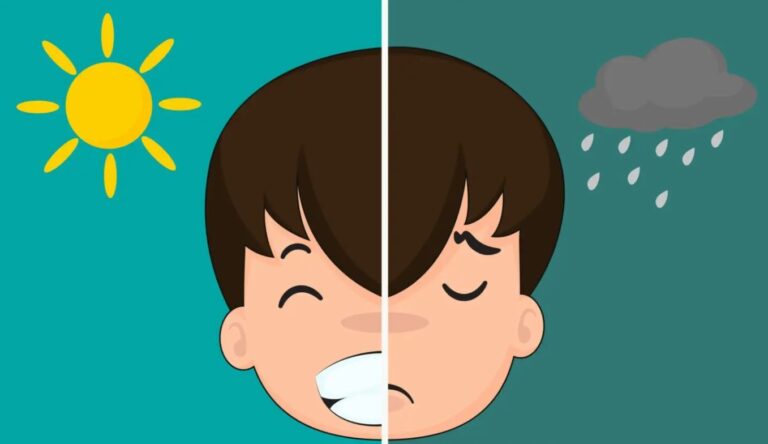In our society, the topic of mental health has gradually moved from the shadows into the spotlight, yet the conversation often overlooks a crucial demographic: men. Despite growing awareness, men’s mental health remains a somewhat taboo subject, shrouded in silence and stigma.
This oversight is not just a failure of discourse but a critical public health issue that demands attention. In this comprehensive exploration, we delve into the complexities of men’s mental health, shedding light on the barriers to seeking help, the unique challenges faced by men of color, and the vital role of support systems in navigating this silent epidemic.
Key Takeaways
- About one in ten men experience depression, but less than half of these men seek treatment, highlighting a significant gap in mental health care for men.
- Men may show different signs of mental distress, such as escapist behavior, substance misuse, and aggressiveness, which can mask underlying mental health conditions.
- Their reluctance to seek mental health treatment is influenced by societal stigma, pride, lack of awareness, fear of judgment, and toxic masculinity, leading to a culture of silence and untreated mental health issues.
Why Do So Many Men Suffer in Silence?
Approximately one in ten men experience depression, yet startlingly, less than half seek treatment. This reluctance stems from a complex web of societal stigma, pride, lack of awareness, fear of judgment, and the pervasive issue of toxic masculinity.
These factors collectively contribute to a culture where men feel compelled to suffer in silence, perpetuating a cycle of untreated mental health issues. The silence around men’s mental health creates a barrier to understanding and empathy, leaving many to navigate their struggles without the support they desperately need.
This lack of dialogue and understanding further entrenches the stigma, making it even more challenging for men to reach out for help.
What’s Wrong with How Society Views Masculinity?
Our society often equates masculinity with strength, resilience, and self-reliance. Men are conditioned from a young age to handle problems on their own and to view the expression of vulnerability as a sign of weakness.
This societal expectation discourages men from seeking help or even acknowledging their struggles, leading to dangerous isolation in times of need. The pressure to conform to these norms can lead to a profound sense of failure in men who struggle with mental health issues, exacerbating their conditions and making it harder for them to seek the help they need.
This cycle of silence and suffering can have devastating consequences, both for individuals and for society as a whole.
Incorporating mental wellness services within primary healthcare can offer a more approachable entry point for men, encouraging them to address their mental health in a familiar and less stigmatized environment.
Are Men’s Mental Health Symptoms Different?
While many mental health warning signs are universal, men may exhibit symptoms differently. The following symptoms are more commonly reported in men..
- Escapist behavior,
- substance misuse,
- anger,
- aggressiveness,
- engaging in risky activities
These outward expressions of distress can often mask underlying mental health issues, making them harder to recognize and address. This difference in symptom expression can lead to misdiagnosis or a complete oversight of the underlying mental health issues, further complicating the path to effective treatment.
Why Are Men of Color Even More Reluctant to Seek Help?
The conversation around this topic becomes even more complex when considering the additional barriers faced by men of color. Racial trauma, discrimination, and systemic inequities contribute to a heightened state of emotional stress.
Moreover, cultural stigma and a lack of culturally competent care exacerbate the reluctance to seek help, with only one in three black adults with mental illness receiving treatment.
This disparity is not just a reflection of systemic issues but also highlights the urgent need for mental health services that are accessible, inclusive, and sensitive to the unique experiences of men of color. Addressing these barriers is essential in creating a more equitable and effective mental health care system.
How Can We Better Support Men’s Mental Health?
Addressing men’s mental health requires a multifaceted approach that acknowledges the impact of toxic masculinity and societal pressures. It’s crucial to create spaces where they feel safe to express vulnerability and seek help without fear of judgment.
Encouraging open conversations, recognizing the signs of mental distress, and offering unwavering support are key steps in supporting the men in our lives.
By challenging the norms that equate vulnerability with weakness, we can foster a culture of empathy and understanding that encourages men to seek help. This shift is vital in breaking down the barriers to mental health care and ensuring that they feel supported in their journey toward healing.
Exploring various therapeutic approaches, such as cognitive behavioral therapy, can offer effective strategies for those struggling with anxiety, providing a pathway to a more balanced and fulfilling life.
How Is Nexus of Hope Making a Difference?
Organizations like Nexus of Hope are at the forefront of changing the narrative around men’s mental health. Offering a range of services from individual therapy to medication management and transcranial magnetic stimulation (TMS) for depression, Nexus of Hope emphasizes the importance of accessible, culturally diverse, and competent care.
Their commitment to addressing the unique needs of men, including those of color, plays a crucial role in breaking down barriers and fostering a more inclusive approach to mental health treatment.
By providing a safe and supportive environment, Nexus of Hope is not just offering vital services but is also helping to destigmatize mental health issues among men, paving the way for a future where seeking help is seen as a sign of strength, not weakness.
FAQs
How can men overcome the fear of judgment when considering seeking help for mental health issues?
Overcoming the fear of judgment involves recognizing the strength in seeking help, educating oneself about mental health to reduce internalized stigma, and finding supportive communities or individuals who understand the importance of mental health care.
What role can employers play in supporting the mental health of their male employees?
Employers can play a crucial role by creating a supportive workplace culture that prioritizes mental health, offering resources such as employee assistance programs (EAPs), and facilitating mental health training and awareness programs to reduce stigma.
How can men differentiate between normal stress and a mental health issue that requires professional help?
Differentiating between normal stress and a mental health issue can be challenging, but key indicators include the duration and intensity of symptoms, the impact on daily functioning, and whether coping mechanisms are effective. Seeking a professional evaluation can provide clarity.
Are there specific mental health resources tailored for men of color?
Yes, there are mental health resources specifically tailored for men of color, including culturally competent therapists, community support groups focused on the unique experiences of men of color, and online platforms that offer resources and connections to mental health professionals.
Can engaging in physical activity improve men’s mental health, and if so, how?
Engaging in physical activity can significantly improve men’s mental health by reducing symptoms of depression and anxiety, enhancing mood through the release of endorphins, and providing a constructive outlet for stress and negative emotions.
What steps can men take to start a conversation about mental health with their loved ones?
Starting a conversation about mental health can begin with choosing a comfortable and private setting, expressing feelings in an honest and straightforward manner, and being prepared to share personal experiences and concerns. It’s also helpful to express the desire for support or understanding rather than seeking solutions.
Summary
Discussing men’s mental health is crucial for breaking the cycle of silence and stigma. It’s about acknowledging that it’s okay not to be okay and that seeking help is a sign of strength, not weakness.
Whether you’re a man struggling in silence or someone who knows a man who might be suffering, remember that support, understanding, and professional help can make a significant difference.
Related Posts:
- Urgent Care for Mental Health Management - Treatment…
- How Mental Health Counseling Helps with Anxiety -…
- What to Expect in Mental Health Treatment? Find Your…
- Probiotics and Mental Health - The Gut-Brain Connection
- How Social Media Directly Impacts Your Mental Well-Being
- The Early Signs of Mental Illness - What Are They…















